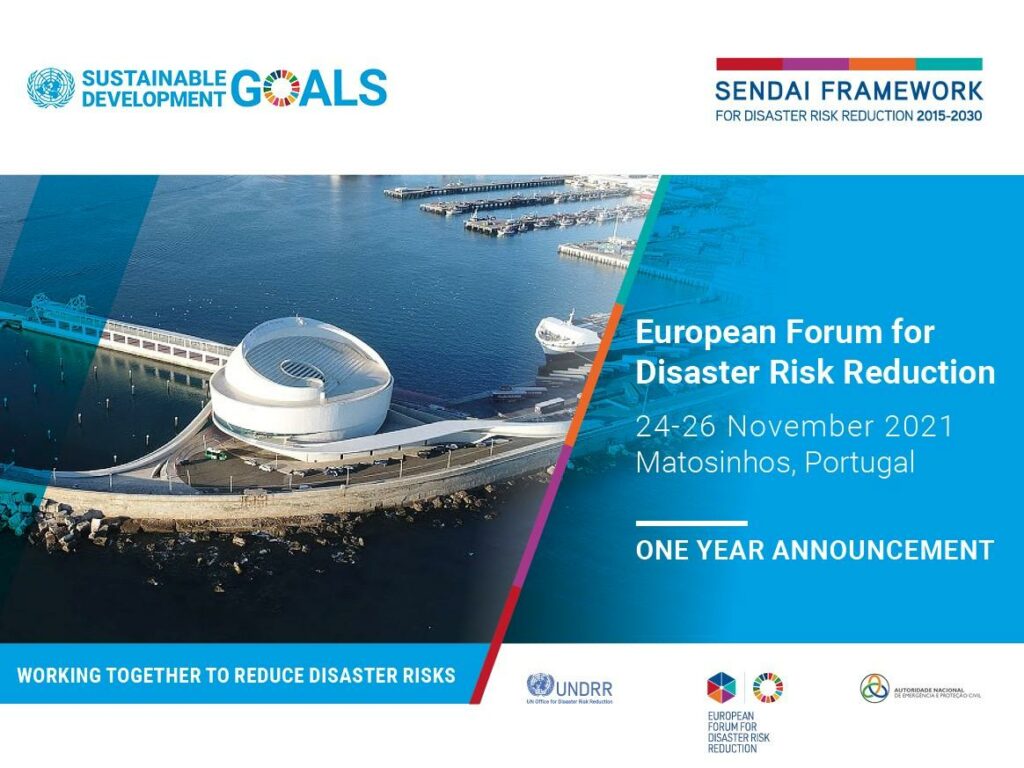
The Horizon 2020 DRS01 Cluster represented by projects RESILOC, BUILDERS, LINKS and Engage contributed to the European Forum for Disaster Risk Reduction (EFDRR) 2021 held on the 24th November in Matosinhos, Portugal; holding a joint multi-stakeholder oriented session for the acceleration of the implementation of the Sendai Framework for Disaster Risk Reduction 2015-2030, with a particular focus on disaster resilience at the local level.
The four projects, organized within a single call of the EU HORIZON 2020 Funding Programme and empowered to collaborate as Resilience Cluster by CMINE, shared the specific challenge of building disaster-resilient societies in the EU through conducting multi-disciplinary research addressing human factors, social, societal, technological, and organisational aspects. The joint contribution is available for viewing even post the conference at the following link Strengthening disaster risk governance at local level: enhancing information exchanges through new technologies and assessment models.
The Cluster’s main goals for the session were to transfer the knowledge gained within its research and innovation activities while describing options to accelerate the implementation of the Sendai Framework (at local/citizen level) through resilience thinking and the combination of existing governance structures and supporting technologies. Our aim is to support whole-of-society resilience, enabled by gaining a better understanding of the needs of diverse members of the society, creation of knowledge based platforms and collaboration interfaces and engaging in an open dialogue with decision and policymakers in the field of DRR, representatives from civil society, research, academia; care organizations and other stakeholders involved in the activities within the disaster risk management cycle.
The key topics addressed included the disaster risk reduction benefits from a transition to resilience-thinking; the disaster resilience needs to involve society as a whole, engaging the civilian population, including the most vulnerable and the perspectives of resilience and vulnerability as multi-faceted and dynamic notions, which need to be operationalised through policies and tools of DRR and beyond (e.g. in social care, urban planning) as well as the ways how new technologies and assessment models can be used to accelerate the implementation of the Sendai Framework for Disaster Risk Reduction by empowering and involving local stakeholders.
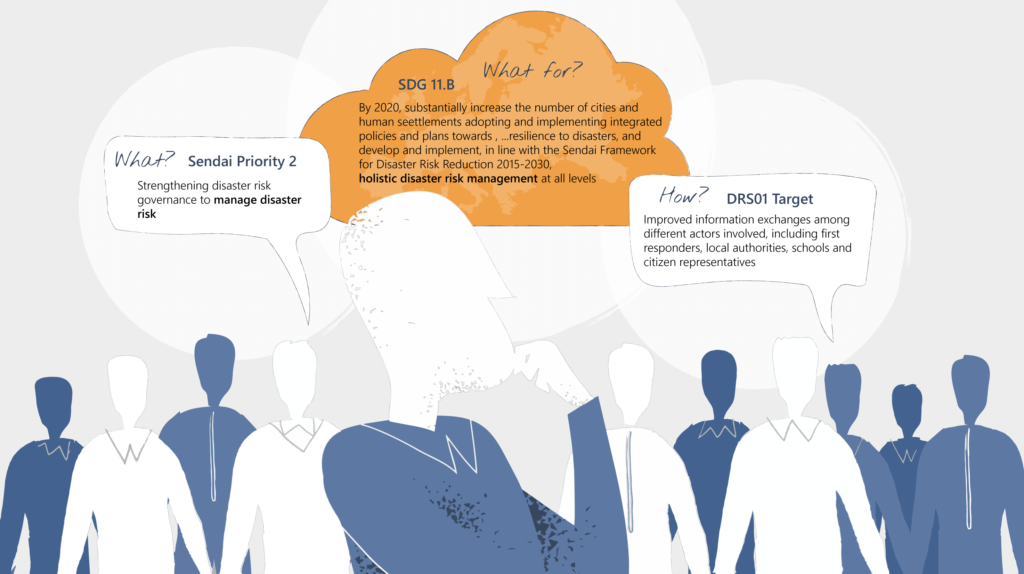
The DRS01 Cluster session was streamlined with the second priority of the Sendai Framework of Strengthening disaster risk governance to manage disaster risk as the core topic of the workshop. The Cluster of four projects introduced and discussed four fields of research and innovation aiming at strengthening disaster risk governance to manage disaster risk. The Cluster also highlighted its work on improving information exchanges between relevant stakeholders. Additionally, it provided subtopics that are attributed to the individual projects at the breakout rooms. These include engaging the civil society, strengthening the links between humans and technology, including the most vulnerable and empowering actors at a local level. Ultimately, the session aimed at describing a contribution towards achieving SDG11b.
The main priorities identified as deserving attention by stakeholders included a need for a paradigm shift in understanding vulnerability as a changing condition, a need for crisis management strategies to be inclusive and reflective of the diversity of needs within segments of the population considered vulnerable and that the risk assessments should consider social vulnerabilities including the (lack of) functionality of formal and informal social support in a crisis.
The main recommendations shared and opportunities identified during the session included a spotlight on the need for reflection on what increases and what decreases vulnerability for certain segments of the population in different situations and the need of training organizations on how to base decisions on the information from social media. This includes integrating technical expertise with decision making processes within the organization.
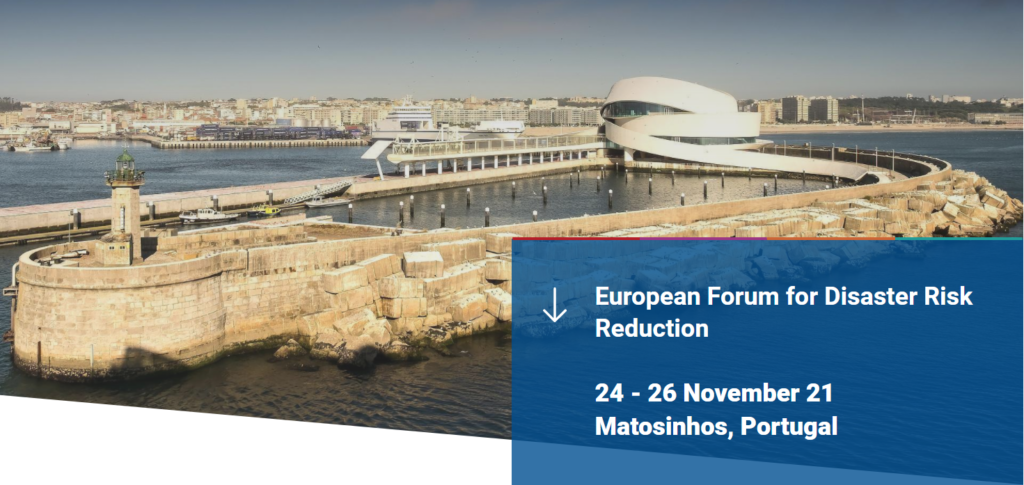
The European Forum for Disaster Risk Reduction 2021 resulted in the adoption of the EFDRR ROADMAP 2021-2030 The EFDRR Roadmap 2021-2030 identifies four shared priority areas for achieving the priorities of the Sendai Framework for Disaster Risk Reduction 2015-2030 and these include 16 common action areas for development and investment, along with five enabling approaches. The Roadmap builds on consultation with European and Central Asian countries, the review of progress in implementing the Roadmap 2015-2020, and lessons learned from the Covid-19 pandemic response and recovery. The Roadmap is also informed by the Global Platform 2019 and the guiding principles for the Global Platform 2022 and will serve as one of the reference frameworks for the Horizon 2020 DRS01 Resilience Cluster.
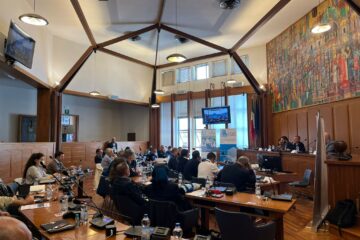
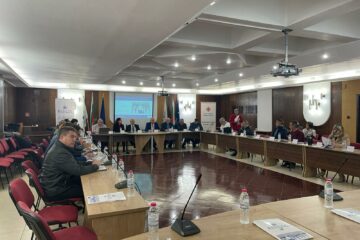
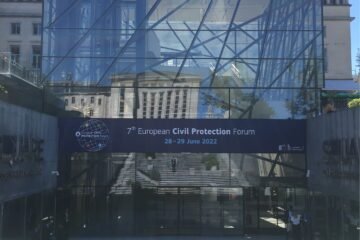
0 Comments